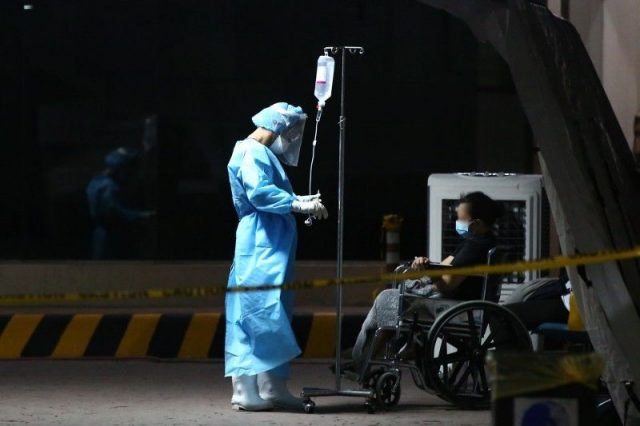Hospitals may harness AI to deal with nurse shortage

By Beatriz Marie D. Cruz, Reporter
TAIPEI — Artificial intelligence (AI) could help hospitals manage the shortage of nurses in the Philippines, a hospital industry executive said.
“Temporarily, that may be one of the solutions for the lack of nurses. (If) you don’t have night staff to provide information, for instance, you can use AI,” Jose Rene D. de Grano, president of the Private Hospitals Association of the Philippines, Inc., told BusinessWorld on the sidelines of the Healthcare+ Expo in Taipei.
Mr. De Grano said he toured a hospital in Taiwan with one nurse attending to up to 20 patients, who usually require nurse staffing of three to five, with the help of AI.
Possible AI applications include answering inquiries and dispensing medication, he said. The real-time monitoring of multiple patients can also be performed with the aid of Radio Frequency Identification systems.
At the Expo, ASUSTek Computer, Inc. (ASUSTek) demonstrated its health tracker watch, known as VivoWatch, which it plans to distribute more extensively across global markets next year as a tool to help healthcare professionals track patient activity and make diagnoses, according to ASUSTek Associate Vice-President for Product Marketing Pei-Wen Hsu.
“Before, when you go to the doctors, doctors always ask you, oh, do you sleep well? Did you take medicine? But if you have this data that can connect through the cloud, the doctor can check the data and to compare it to the chart at the hospital,” Ms. Hsu told BusinessWorld, also on the sidelines of the expo.
The new VivoWatch integrates electrocardiogram (ECG) sensors to help diagnose certain heart conditions, as well as Photoplethysmography (PPG), which detects blood volume changes.
ASUSTek is also promoting its speech recognition transcription application, Agility, to help healthcare professionals record checkups with patients faster.
“For example, I’m the patient and the doctor has a question for me. The speech recognition function can record what I’m saying,” Ms. Hsu said.
Citing the Taiwan government’s New Southbound Policy, ASUSTek is considering future market expansion in the Philippines, according to Ms. Hsu.
NURSE MIGRATION
Philippine hospitals have now fully accepted the inevitability of nurse migration, Mr. De Grano said.
“That is the thinking of the new generation of nurses… they still want to go out,” he said in Filipino. “We’re not against that because it will improve our economy… and the quality of life of our nurses.”
Jose P. Santiago, Jr., incoming president of the Philippine Hospital Association, said nurses are also attracted to countries with strong education systems for the sake of their children.
“I have interviewed several nurses, mostly single mothers… they want to leave because they want to provide a better education to their kids. They also consider their families when they migrate,” he told BusinessWorld separately.
Mr. Santiago said that a healthy working environment, subsidized post-graduate schooling, competitive salary, incentives, and training could help nurses stay in the Philippines.
Mr. De Grano noted that Cambridge-based Occupational English Test is set to conduct free English proficiency training in hospitals and medical schools especially for nurses who want to work in the United Kingdom.
“We agreed… we’ll (pursue such arrangements) in order to persuade our nurses to stay a while before they leave the country,” he said.
The Commission on Higher Education last year lifted the moratorium on universities and colleges seeking to open new nursing programs.
“We’re now really looking forward for better supply of nurses,” Mr. Santiago said.



